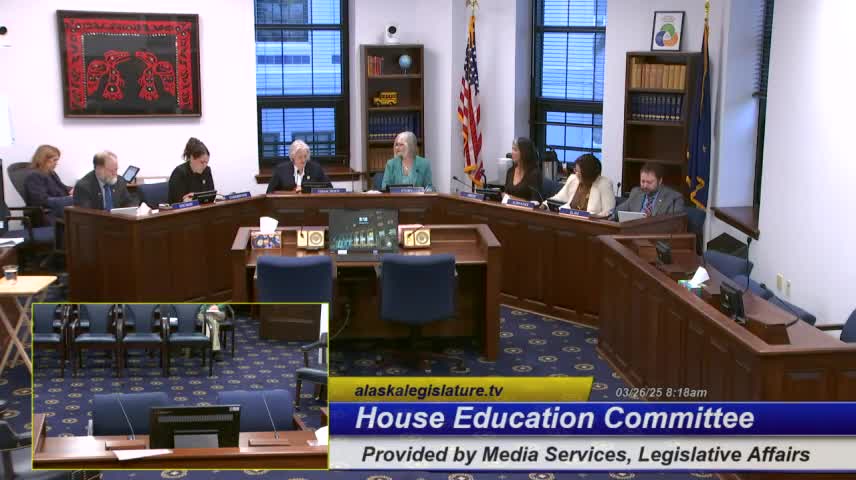PTPC candidate Baird discusses ethics oversight for educators in Alaska
March 26, 2025 | 2025 Legislature Alaska, Alaska
This article was created by AI summarizing key points discussed. AI makes mistakes, so for full details and context, please refer to the video of the full meeting. Please report any errors so we can fix them. Report an error »

Accusations of ethical violations in education took center stage during a recent Alaska State Legislature meeting, as members discussed the crucial role of the Professional Teaching Practices Commission (PTPC) in maintaining standards within the profession. The dialogue highlighted the importance of neutrality and thoroughness in addressing complaints against educators.
A key point raised was the approach to handling accusations of ethics violations. A nominee for the PTPC emphasized the need for an unbiased perspective when reviewing cases, stating, "I would bring a position of neutrality to each complaint." This approach aims to ensure that all information is carefully considered against the established code of ethics before determining any potential consequences.
The discussion also touched on the increasing number of educators entering the profession through alternative routes, sparking questions about the PTPC's role in supporting these individuals. One representative noted the significance of community members stepping into teaching roles, emphasizing the need for appropriate training regardless of their educational background. The nominee agreed, stating, "I don't think there is one path to becoming an educator," and stressed the importance of ensuring that all teachers, including those from nontraditional backgrounds, are well-versed in the code of ethics.
As the meeting concluded, the commitment to uphold high standards in education was clear. The PTPC's role in guiding new educators and addressing ethical concerns remains vital in fostering a professional environment that benefits both teachers and students across Alaska.
A key point raised was the approach to handling accusations of ethics violations. A nominee for the PTPC emphasized the need for an unbiased perspective when reviewing cases, stating, "I would bring a position of neutrality to each complaint." This approach aims to ensure that all information is carefully considered against the established code of ethics before determining any potential consequences.
The discussion also touched on the increasing number of educators entering the profession through alternative routes, sparking questions about the PTPC's role in supporting these individuals. One representative noted the significance of community members stepping into teaching roles, emphasizing the need for appropriate training regardless of their educational background. The nominee agreed, stating, "I don't think there is one path to becoming an educator," and stressed the importance of ensuring that all teachers, including those from nontraditional backgrounds, are well-versed in the code of ethics.
As the meeting concluded, the commitment to uphold high standards in education was clear. The PTPC's role in guiding new educators and addressing ethical concerns remains vital in fostering a professional environment that benefits both teachers and students across Alaska.
View full meeting
This article is based on a recent meeting—watch the full video and explore the complete transcript for deeper insights into the discussion.
View full meeting
